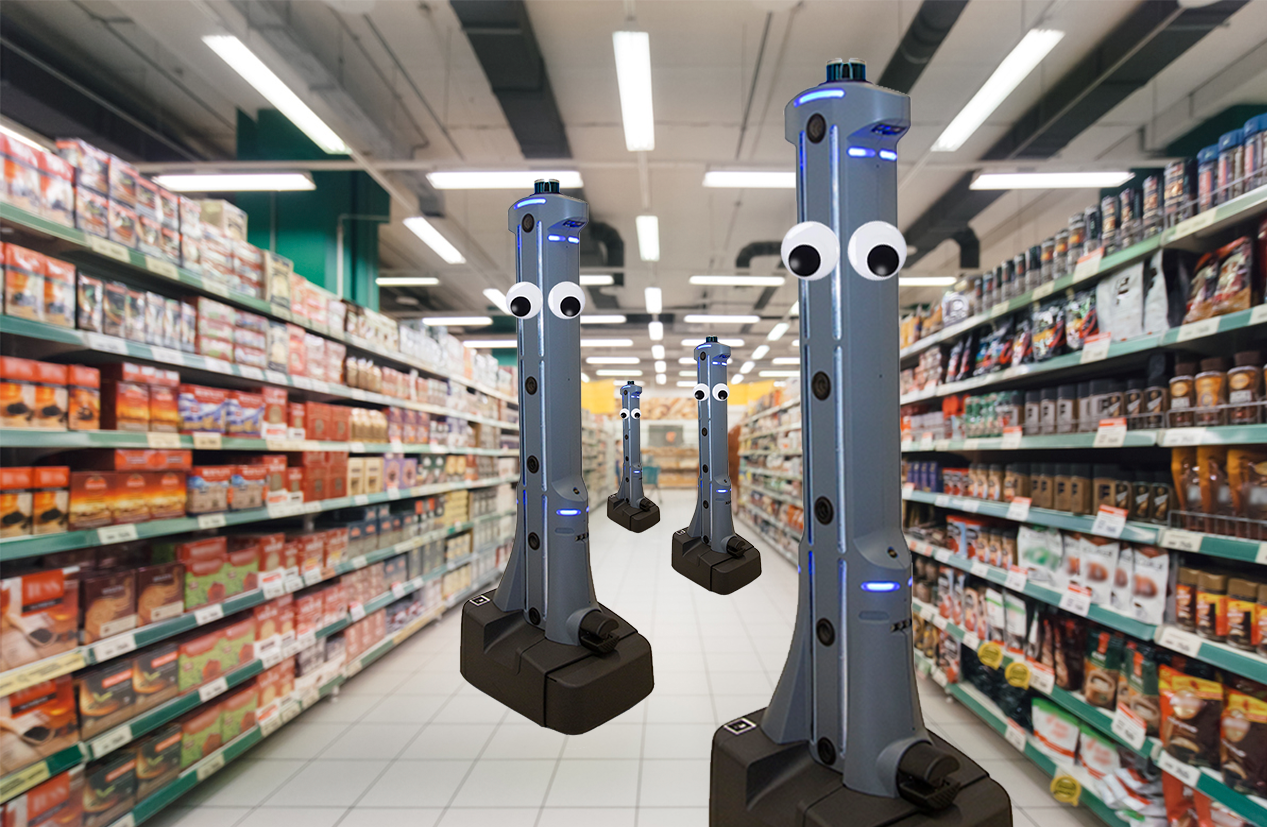Sustainability in Supermarkets: Rage for the Machine
 Rage for the Machine
Rage for the Machine
Sustainability is a titanic issue facing our planet, with food production and manufacturing practices a big contributor to climate change. A right old iceberg in the path of a greener society, if you will. Yet, fresh into a new decade, the major UK supermarkets are still moving at a glacial pace to curb their food waste, plastic pollution and emissions. Naturally, I have decided it’s time for someone to step up and solve this sustainability issue for food retailers once and for all. And luckily, I think I’ve come up with the answer: technology. With the support of close friend and personal mentor Google behind me, I embarked on some of the most basic research I could possibly find to solve this pesky sustainability issue.
According to the 2019 European Grocery Insights Data Report 68% of UK shoppers agreed there’s no place for supermarkets who refuse to address sustainability and 56% even identified technology as crucial to finding a solution to the sustainability crisis. If Dave from your local Tesco can see that implementing innovative technology into retail systems will ease pollution, then why can’t our nation’s supermarkets? After diligently skim-reading several hard-hitting articles, I’ve done all the necessary legwork for the bigwigs in food retail and provided three separate opportunities to use technology for greater sustainability and customer relations.
Energy WasteFood retailers account for 3% of UK electricity consumption, with 30-60% of this coming from refrigeration. Campaigners have called for refrigerators with doors to be the standard to reduce this drain of energy as refrigerant leakage is associated with up to 20% of stores greenhouse gas emissions and climate change contributor. Though this solution seems almost deceptive in how easy it is to correct, many top supermarkets have failed to tackle the incredibly complex hurdle of attaching doors to their fridges. If supermarkets think that a transparent door will stop me from grabbing the last New York style cheesecake they’ve got another thing coming. Yet, if supermarkets insist on this aversion to doors, digital technologies like the objectively strange sounding Internet-of-things (IoT) for instance can enhance the efficiency of cold chains to reduce energy waste. Technology can enable supermarkets to use sensors and real-time data collection to help them adapt refrigeration practices – allowing them to extend product shelf life whilst saving energy and cutting greenhouse gas emissions. With the use of IoT and connecting coolers, freezers, HVAC units and others power-using equipment to a centralized program, retailers can get an accurate picture of their energy use. The information allows them to manage equipment performance and utilize settings for optimum temperatures and lighting. Though I’m still in favour of the door solution, as I wouldn’t have to wear three coats just to wander the icy tundra of supermarket aisles, it’s still a constructive use of technology to prevent energy waste.
ProvenanceTransparency is becoming increasingly important to consumers as concerns over sustainability colours the way many of us shop. In fact, 71% of consumers think large supermarket groups should be legally required to produce annual reports on their food/packaging waste, and 40% advocate for fines on those who fail to cut waste levels. Utilising technology, supermarkets can successfully engage with ethical customers like me. In Denmark for example, the government is working on creating labels that detail the carbon footprints of food products. Progressive technology such as sensors in the form of Radio Frequency Identification transmitters and GPS systems can be used to track goods as they move from the production plant to storage facilities and finally onto shop shelves. By leveraging IoT data, brands can evaluate driver routes against delivery data – this information can then be combined with info on pollution levels, congestion areas and even weather forecasting, to define which routes will keep both costs and emissions low. QR codes could then open apps to provide visualisations of product journeys for customers so that we can all lovingly stalk our future meals. This transparency would definitely be reassuring for sustainability conscious consumers but let’s take it to the next level; pop a sensor on the driver, let the consumer check in with him personally to ensure he’s driving responsibly so as not to risk bruising our Fairtrade bananas.
Food WasteHas anybody ever fancied a piece of toast only to find their bread has matured a day too long, subsequently picked off the mould, toasted the now cleaned bread, slathered it in butter and eaten it? If you have – kudos. You’re in good company with the rest of us heroes because food waste is a massive global problem… if only supermarkets were as dedicated. Customers have an increasingly high expectation of their food supplier with 88% of people agreeing that retailers and food manufacturers must reduce the amount of food and packaging waste they produce within the next three years. Just as Uncle Ben might have said if he had been advising Spiderman in 2020 vs the 1960s; “with great transparency comes great accountability”. As the public becomes more informed, food waste is no longer just a cost issue for supermarkets but a reputational one. In 2019 all of the UK’s major supermarkets united to sign a pledge to cut food waste in half by 2030. This is a rather disappointing pledge when considering France’s progress, where supermarkets have been banned from throwing away or spoiling unsold food and are obliged to sign agreements to donate these goods to charities. Vive Le France! One way to reduce waste is to improve supermarket’s stock forecasting capabilities. Retailers have long been challenged with the inefficiencies in their supply chains, which causes product overstock that is a key consumer concern. AI and machine learning have the power to help supermarkets be better environmental stewards and reduce waste by providing them with actionable insights and improved forecasting. One such example is of Steve King, CEO and co-founder at Black Swan Data, who helped Tesco save £2million by forecasting the first BBQ weekend of the year. Pigs everywhere still thank him for saving their bacon for another day.
ConclusionIn conclusion I will now collect all praise, applause and my cheque for £1 billion as soon as your eyes clear from those tears of gratitude. Ego aside, information like this is easily researched and any concerned consumer can see for themselves the accessible measures that can be taken to reduce environmental impact. So why can’t our supermarkets? Harnessing these technologies can enable supermarkets to provide transparency to increasingly concerned consumers, radically cut their energy waste and carbon emissions and reduce food waste with effective stock forecasting. The technology is readily available and though not a fix-all solution, will go a long way in increasing sustainability, improving supermarket practices and strengthening customer relations. Though my time as saviour of the world has been fleeting, I must hang up my cape and simply hope that the nation’s supermarkets seize the opportunity to wear it themselves, before it’s too late.
Powered by EquiNordic Systems


